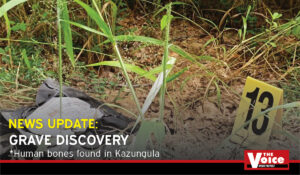The Financial Intelligence Agency (FIA) has recorded a worrying increase in suspicious financial activity in the 2022/23 reporting period, involving 565 transactions worth over P2 billion.
This is a significant rise from the previous year (2021/22), which saw 344 suspicious transactions involving a total of P9.6 million.
The FIA Annual Report, which was recently released, reveals that most of these dubious transactions were detected in the banking sector, accounting firms, insurance companies, car dealerships, and credit unions.
The FIA is responsible for collecting and analysing information on suspicious transactions and reporting them to the relevant authorities for further action.
The agency also monitors and enforces compliance with anti-money laundering and counter-terrorism financing laws and regulations.
The FIA was removed from the grey list of the Financial Action Task Force (FATF) in 2022, after implementing stringent measures to track and trace money movements in the country.
According to the report, the banking sector submitted 393 reports of suspicious transactions in 2022/23, totaling P1.7 billion.
This marks a 160 percent increase from the previous year, where 151 reports involving P399.2 million were recorded.
“The number of Suspicious Transaction Reports (STRs) submitted by the banking sector increased by 160 percent, from 151 in 2021/22 to 393 in 2022/23, constituting 70 percent of total STRs received,” the report states.
Financial institutions are required to report any local or foreign transactions exceeding P9,999.00 to the FIA.
On the other hand, the Bureau de Change sector saw a decrease in suspicious transactions, with 57 cases involving P1.42 million in 2022/23, down from 137 cases involving P869,200.00 in 2021/22.
Legal practitioners reported four cases involving just over P1 million in 2021, which decreased to three cases involving P427,000.00 in 2022/23.
The FIA has been conducting compliance examinations since 2018 and continues to implement measures to ensure ongoing compliance.
Bopelokgale Soko, the Director General of FIA, emphasised that Botswana has adopted UN Security Council Resolutions on the prevention and suppression of terrorism, terrorism financing, and the disruption of weapons of mass destruction.
“The targeted financial sanction (TFS) regimes align with FATF Recommendations 6 and 7, requiring countries to freeze funds or assets owned or controlled by individuals or entities listed in the UNSC or domestic sanction list,” she said.
The report also shows an increase in the number of entities within various sectors that are obliged to report specific transaction types on designated parties.
Casinos, lawyers, Non-Bank Financial Institutions, Accounting Firms, Dealers in Precious Stones, and Real Estate Firms collectively account for over 50 percent of these reporting entities.
Moreover, the FIA noted a significant surge in the value of cash transactions, which grew from P25 billion to approximately P62 billion in 2022/23, accompanied by a corresponding rise in the number of transactions, from 0.65 million to 1.68 million.
“This trend reflects a growing preference for cash transactions over the years, with important implications for money laundering vulnerabilities, as cash-intensive economies tend to facilitate the laundering of illicit proceeds,” the report highlights.
A separate assessment in October 2022 of the second-hand vehicle dealership industry indicated a medium-high vulnerability compared to ‘new car’ dealerships. “This was mainly due to weak entry controls, limited knowledge on AML/CFT/CFP issues by officers and ineffective compliance functions,” the FIA report says.
However, the assessment found the threat of terrorism financing to be medium-low, considering the absence of positive matches in the implementation of UNSC Resolutions and the unsatisfactory compliance efforts by motor dealers during the review period.

















